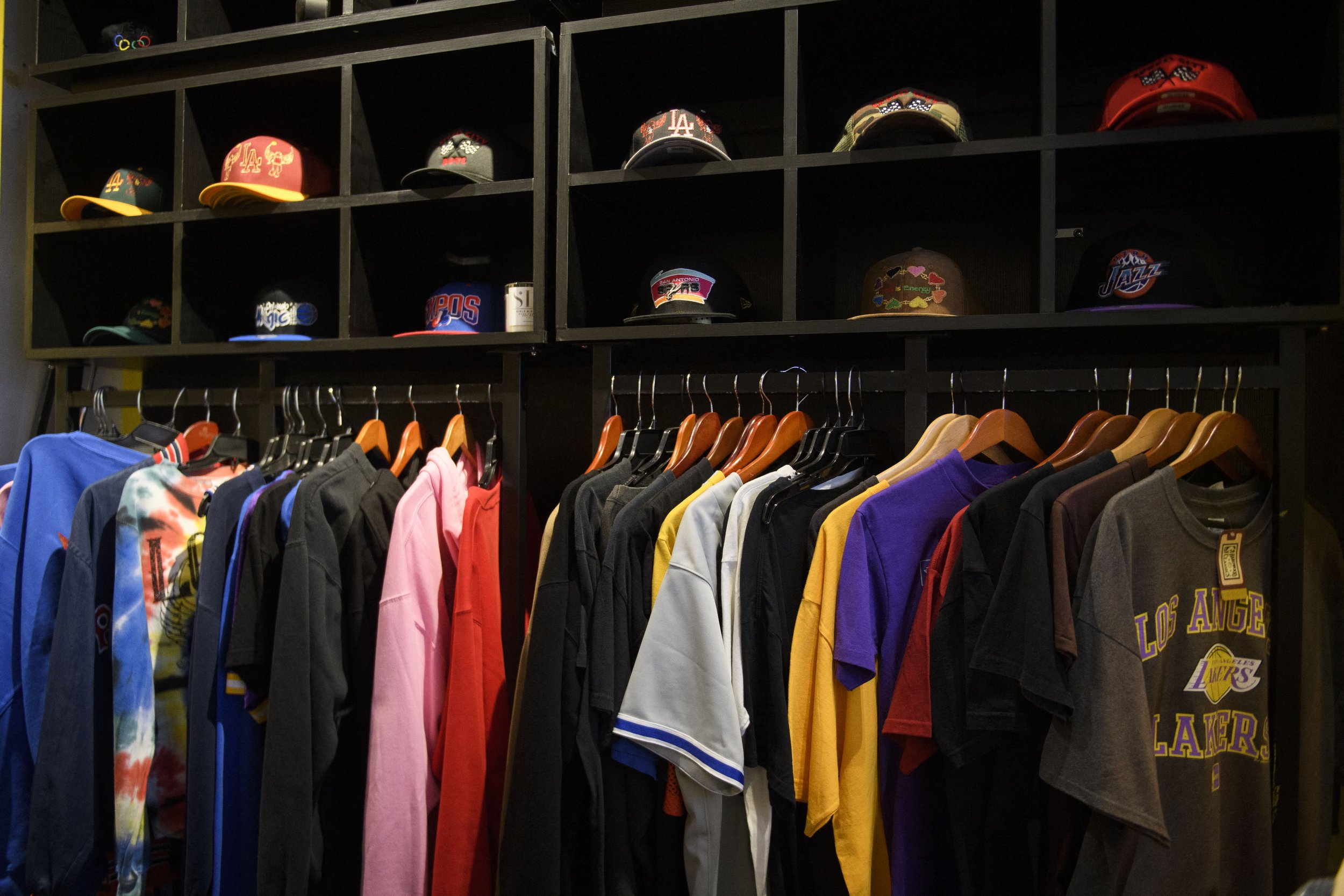Haenyeo Divers Threatened by Climate Change
Jung Sun-ja, 84, Yoon Yeon-ok, 74, and Ko Keum-sun, 69, pose after working in the sea in Busan, South Korea. [Reuters/Kim Hong-Ji]
By Isra Rahman
A sisterhood of divers in South Korea have been harvesting abalone, conches, shellfish and other sea life off the island of Jeju since the 17th century, but climate change may be threatening their work.
Haenyeo, or "sea women,” come from a long diving tradition. They can dive as deep as 20 meters and stay under water for as long as a minute. In each dive, they gather as much as they can carry and place it in floating nets. Later, these goods are sold to local and international buyers.
The divers have been the bedrock of Jeju’s economy since the 1600s, when men were called away from the island to fight foreign wars and women took on the responsibility of diving. Becoming a haenyeo can take up to five years of training. In 2016, UNESCO included them on its Representative List of the Intangible Cultural Heritage of Humanity, drawing much tourism to the island specifically to see the haenyeo.
The divers say they see their work as more than just a job; it’s a way of life that keeps them connected to the ocean. However, this centuries-old practice may be coming to an end as climate change transforms the ocean.
Seas off Korea’s southern coast have warmed as much as 1.2 degrees Celsius, causing an influx of new species and the degradation of the existing underwater habitat. Large seaweed has disappeared, causing marine life to die off.
Haenyeo don’t use oxygen tanks, and as the environment erodes, they are being forced to dive deeper to find what they need, threatening their ability to work.
“With the rise in water temperatures, the diversity of species has dropped markedly,” Kim Byung-il, a diver of 34 years, told Korea JoongAng Daily. “In the past, there was a lot of gulfweed and brown algae, which served as hideouts and spawning grounds for many fish. But brown algae has disappeared and been replaced by hard corals.”
At their peak in the 1960s, there were 26,000 haenyeo divers on Jeju. Now, there are only 4,500.
Fewer women are training their daughters in how to dive, opting to educate them and send them to work in the city. Just as environmental degradation hurts the haenyeo way of life, the disappearance of divers means that generations of knowledge are disappearing, too.
Haenyeo practices emphasize living in harmony with the ocean and taking only what’s needed. The women divers track the seasons and know how to harvest without draining the resources needed for the ecosystem to survive. These practices have also provided many people with a sense of community: the haenyeo make a commitment to take care of one another (and make sure no one is diving for too long or too deep). Before a dive, they pray to the goddess of the sea, Jamsugut, to ask for safety and an abundant catch.
These divers have long supported their families and community, and been stewards of the environment. But this unique chapter in Korean life may be coming to an end.
Ko Seung-yo, 72, wears rubber clay in her ears while working in the sea in Busan, South Korea, April 6, 2021. [Reuters/Kim Hong-Ji]
A senior diver in Busan, South Korea. [Reuters/Kim Hong-Ji]
Woo Jung-min, 35, poses for a photograph with sea cucumbers that she harvested in the sea off Geoje, South Korea. [Reuters/Kim Hong-Ji]
Woo Jung-min, 35, a haenyeo, also known as a "sea woman", displays sea squirts living on a discarded plastic bag that she found under the water while diving in the sea off Geoje, South Korea. [Reuters/Kim Hong-Ji]
Jin So-hee, 28, a haenyeo, gives a shoulder massage to Ko Sun-a, a senior haenyeo, before going out to the water to work in the sea, in Geoje, South Korea. [Reuters/Kim Hong-Ji]
Jin So-hee, 28, and Woo Jung-min, 35, talk to each other in the sea off Geoje, South Korea. [Reuters/Kim Hong-Ji]
Jin So-hee and Kim Myung-soon float in the water as they work in the sea off Geoje, South Korea. [Reuters/Kim Hong-Ji]
Jin So-hee collects diving suits from a washing line as she prepares to work in the sea, at a port in Geoje, South Korea. [Reuters/Kim Hong-Ji]
Jin So-hee, 28, and Woo Jung-min, 35, prepare to dive into the sea off Geoje, South Korea. [Reuters/Kim Hong-Ji]
Jin So-hee, 28, and Woo Jung-min, 35, apply eco-friendly sunscreen to their faces as they prepare to work in the sea off Geoje, South Korea. [Reuters/Kim Hong-Ji]

![Jung Sun-ja, 84, Yoon Yeon-ok, 74, and Ko Keum-sun, 69, pose after working in the sea in Busan, South Korea. [Reuters/Kim Hong-Ji]](https://images.squarespace-cdn.com/content/v1/5f21dbb91adde3260d4ba1ef/1620239424629-WVX26CCL1H6OV82CL74B/Env+Asian+Wldlife+1.JPG)
![Ko Seung-yo, 72, wears rubber clay in her ears while working in the sea in Busan, South Korea, April 6, 2021. [Reuters/Kim Hong-Ji]](https://images.squarespace-cdn.com/content/v1/5f21dbb91adde3260d4ba1ef/1623434898018-RPB31M2BREQQBZ4HFA2N/ENV+ASIAN+WLDLIFE+11.JPG)
![A senior diver in Busan, South Korea. [Reuters/Kim Hong-Ji]](https://images.squarespace-cdn.com/content/v1/5f21dbb91adde3260d4ba1ef/1623435532354-LBLLCS39ZHB6Q76IVTQ3/Env+Asian+Wldlife+2.JPG)
![Woo Jung-min, 35, poses for a photograph with sea cucumbers that she harvested in the sea off Geoje, South Korea. [Reuters/Kim Hong-Ji]](https://images.squarespace-cdn.com/content/v1/5f21dbb91adde3260d4ba1ef/1623435643237-0M76PJDHGJRNQJKSXTCJ/ENV+Asian+WLDLIFE+7.JPG)
![Woo Jung-min, 35, a haenyeo, also known as a "sea woman", displays sea squirts living on a discarded plastic bag that she found under the water while diving in the sea off Geoje, South Korea. [Reuters/Kim Hong-Ji]](https://images.squarespace-cdn.com/content/v1/5f21dbb91adde3260d4ba1ef/1623688922352-KJ8X1AGYUBOSH753LTLR/ENV+Asian+WLDLIFE+3.JPG)
![Jin So-hee, 28, a haenyeo, gives a shoulder massage to Ko Sun-a, a senior haenyeo, before going out to the water to work in the sea, in Geoje, South Korea. [Reuters/Kim Hong-Ji]](https://images.squarespace-cdn.com/content/v1/5f21dbb91adde3260d4ba1ef/1623435686765-41ZE0DZ8ZJDFQI1CPNHM/ENV+ASIAN+WLDLIFE+10.JPG)
![Jin So-hee, 28, and Woo Jung-min, 35, talk to each other in the sea off Geoje, South Korea. [Reuters/Kim Hong-Ji]](https://images.squarespace-cdn.com/content/v1/5f21dbb91adde3260d4ba1ef/1623690679830-Y2PNVPJS3TL7HMBAM7J5/2021-04-19T060402Z_1684090174_RC2UYM9RC9DB_RTRMADP_3_EARTH-DAY-SOUTHKOREA-HAENYEO.JPG)
![Jin So-hee and Kim Myung-soon float in the water as they work in the sea off Geoje, South Korea. [Reuters/Kim Hong-Ji]](https://images.squarespace-cdn.com/content/v1/5f21dbb91adde3260d4ba1ef/1623690724086-WZNPX7UVG41J6OAO0WX3/2021-04-19T060535Z_1544343740_RC2UYM9X8AEJ_RTRMADP_3_EARTH-DAY-SOUTHKOREA-HAENYEO.JPG)
![Jin So-hee collects diving suits from a washing line as she prepares to work in the sea, at a port in Geoje, South Korea. [Reuters/Kim Hong-Ji]](https://images.squarespace-cdn.com/content/v1/5f21dbb91adde3260d4ba1ef/1623688989899-NBG6MZOWAHDXWXNSRGB9/ENV+Asian+WLDLIFE+5.JPG)
![Jin So-hee, 28, and Woo Jung-min, 35, prepare to dive into the sea off Geoje, South Korea. [Reuters/Kim Hong-Ji]](https://images.squarespace-cdn.com/content/v1/5f21dbb91adde3260d4ba1ef/1623435739064-B5JS8SWM8B5Y0JMK3SX6/ASIAN+ENV+WLDLIFE+9.JPG)
![Jin So-hee, 28, and Woo Jung-min, 35, apply eco-friendly sunscreen to their faces as they prepare to work in the sea off Geoje, South Korea. [Reuters/Kim Hong-Ji]](https://images.squarespace-cdn.com/content/v1/5f21dbb91adde3260d4ba1ef/1623435254762-SE57JTLEKP4WY6JX5ZD8/ENV+Asian+WLDLIFE+4.JPG)




